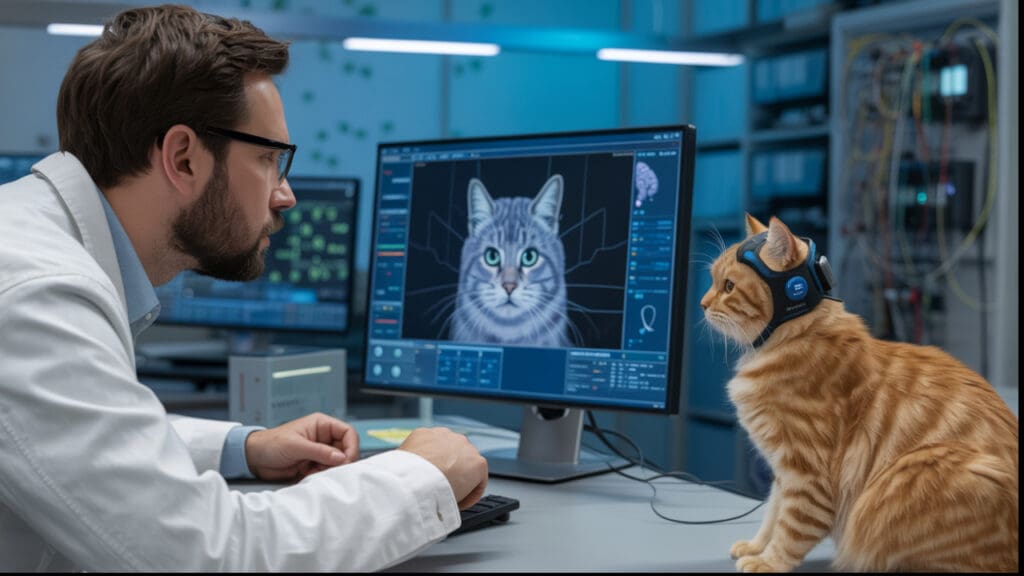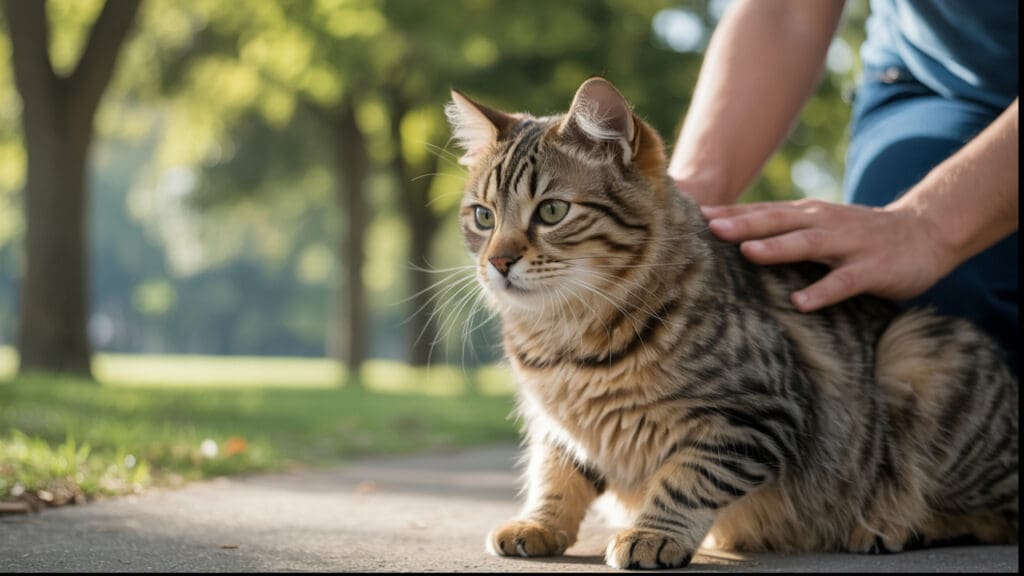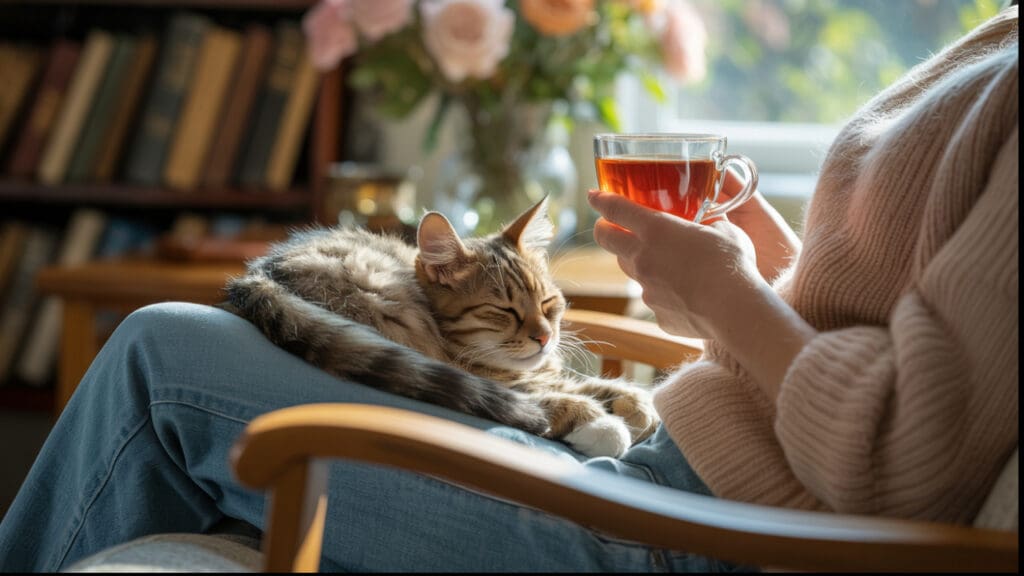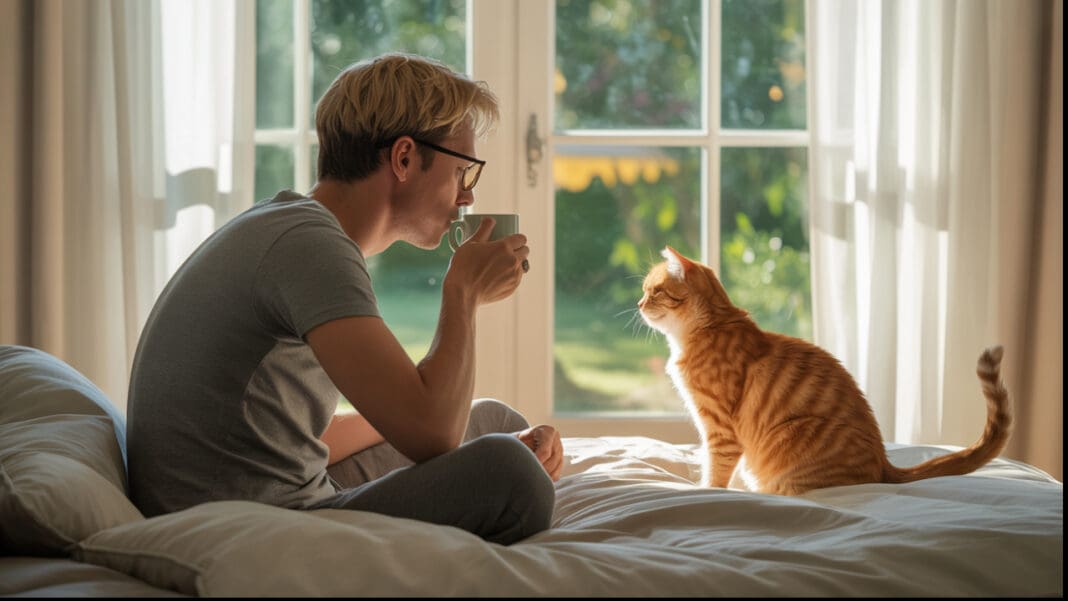It’s a quiet truth hiding in plain sight: cats are healers. Not with stethoscopes or prescriptions, but with slow blinks, gentle purrs, and an intuitive knack for appearing precisely when you need comfort most. While much has been written about therapy dogs and emotional support animals, a growing body of clinical and behavioral research now underscores what millions of cat owners have always known: the emotional wellness benefits of feline companionship are profound—and often life-changing.
As rates of anxiety, depression, and loneliness reach record highs, especially in the post-pandemic landscape, people are increasingly turning to their pets not just for company but for connection. And at the heart of this growing wellness trend stands a company whose mission aligns closely with both the science and the sentiment: Dr. Elsey’s.

The Emotional Science of Cat Companionship
While the stereotype of cats as aloof or independent persists in pop culture, behavioral data paints a much richer picture. According to a 2023 Frontiers in Psychology study, pet cats significantly reduced feelings of loneliness and depressive symptoms in adults living alone. In fact, individuals who shared their home with a feline companion scored consistently lower on stress and isolation indices than their non-pet-owning peers.
Even more compelling, a 2019 survey by the Human Animal Bond Research Institute (HABRI) found that:
- 74% of pet owners reported improved mental health from pet ownership
- 54% said their pets helped them connect with other people, improving their social lives
- 76% of cat owners specifically said their cats helped them manage daily stress and anxiety
While the purring itself may feel therapeutic, it’s not just anecdotal. Frequencies between 20–140 Hz—precisely the range of a cat’s purr—are known to promote healing in soft tissue and bone, according to studies from the Journal of the Acoustical Society of America. The implications are striking: cats don’t just calm us down emotionally—they may trigger physiological responses that promote recovery and resilience.

Dr. Elsey’s: Supporting the Human-Feline Bond Through Science
Founded by veterinarian Dr. Bruce Elsey in 1987, Dr. Elsey’s is best known for its game-changing cat litter, including the clinical-grade “Cat Attract®,” designed to solve inappropriate elimination problems. But the company’s full range of products reveals a more holistic mission—one that supports not just feline physical health but the emotional infrastructure of the households they inhabit.
1. Cleanprotein™: Nutrition for Mood and Energy Stability
Dr. Elsey’s Cleanprotein™ cat food is formulated around a deceptively simple concept: cats are obligate carnivores, and their bodies (and minds) thrive when fed accordingly. Unlike many commercial pet foods loaded with plant proteins, Cleanprotein™ sources over 90% of its protein from real animal ingredients like chicken or salmon.
Why does this matter for emotional health?
- Cats with balanced blood sugar and lean muscle mass show significantly reduced anxiety-related behaviors, such as aggression, excessive vocalization, or nighttime activity.
- A steady source of clean animal protein supports stable mood regulation via a healthy microbiome, which in turn affects neurotransmitter production (notably serotonin).
- By supporting feline vitality and reducing obesity (which affects 60% of U.S. cats according to the Association for Pet Obesity Prevention), Cleanprotein™ helps ensure more active, engaged, and emotionally responsive pets.
2. Stress-Reducing Litter Solutions
Behavioral problems, particularly related to litter box avoidance, are a major source of stress for both cats and their guardians. According to the American Veterinary Medical Association (AVMA), up to 10% of cats develop elimination issues at some point in their lives—and in many cases, this can lead to rehoming or surrender.
Dr. Elsey’s Cat Attract® Litter includes a proprietary blend of herbs and textures specifically engineered to attract cats to the litter box and reduce environmental stress. It’s a first-of-its-kind solution to a problem that can otherwise fracture the cat-human bond.
Other specialty litters—such as Touch of Outdoors™, which replicates natural soil conditions for indoor cats—cater to emotional enrichment and sensory comfort, especially for felines struggling with confinement stress or urban apartment environments.
3. Senior and Special Needs Formulations
As cats age, they often experience cognitive decline, confusion, or changes in sensory processing that can negatively affect their interactions and routines. Dr. Elsey’s senior-focused formulas use ingredients tailored to support brain health, ease digestion, and reduce inflammatory stress.
When cats age gracefully with comfort and cognitive clarity, their relationships with their humans remain strong. This continuity contributes to emotional consistency in the household—particularly for seniors or individuals with disabilities, who may depend on feline companionship as a primary emotional anchor.

The Bigger Picture: Pet Ownership and Public Health
The societal implications of pet ownership—and feline companionship in particular—extend far beyond individual households. In a 2021 study by UCLA, elderly individuals who owned a cat were significantly more likely to describe themselves as “emotionally well” and “purpose-driven,” particularly those living alone or with limited mobility.
Meanwhile, a University of Manchester study found that over one-third of people with serious mental illnesses reported their pets, particularly cats, as one of their strongest social supports. Pets ranked higher than friends, family, or therapists for many participants when describing reliable sources of comfort.
These findings are echoed in broader public health data:
- Depression affects over 21 million adults in the U.S. (CDC, 2023)
- Loneliness now rivals smoking and obesity as a risk factor for early mortality, according to former U.S. Surgeon General Dr. Vivek Murthy
- Pet ownership is associated with a 20% reduction in risk of cardiovascular events, including heart attack and stroke (American Heart Association, 2019)
In other words, owning a cat isn’t just good for the soul—it may extend your life.

An Emotional Economy: Cats and the Future of Mental Wellness
As conversations about mental health continue to enter mainstream discourse, more individuals are seeking solutions that are non-pharmaceutical, relationship-driven, and naturally integrated into daily life. Cats, by their nature, offer precisely that.
Their routines—predictable yet affectionate—create structure. Their presence is quiet yet profoundly grounding. For many, the act of feeding, grooming, and caring for a cat creates a sense of mutual dependency that fosters purpose and self-worth.
Dr. Elsey’s understands that to support cats is to support people. Every product they offer—whether it’s a litter engineered to relieve feline anxiety or a protein-rich diet tailored for metabolic stability—reflects this core belief: emotional health in the home begins with wellness for every member of the household, including the four-legged ones.
Final Thoughts
In a world increasingly defined by stress, uncertainty, and digital disconnection, the simple purr of a cat is more than a comfort—it’s a quiet revolution. The bond between humans and their feline companions offers resilience, balance, and emotional healing that science is only just beginning to quantify.
Dr. Elsey’s isn’t simply a product company. It is, in many ways, a steward of that bond.
By providing health-optimized nutrition, behaviorally engineered litter solutions, and senior-supportive formulations, Dr. Elsey’s empowers households to strengthen one of life’s most intimate relationships—the one between human and cat.
And in doing so, it offers something increasingly rare in today’s mental health landscape: support that is quiet, natural, and always there when you need it.

